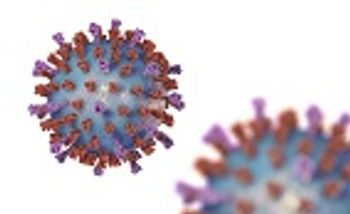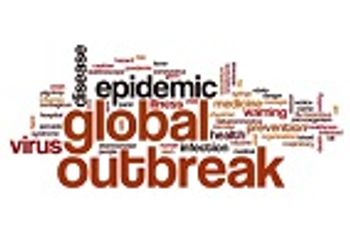
According to their research, the model can be manipulated to recreate the process of immune-cell response and reproduce the function of the lymph nodes in immune cell activation.

According to their research, the model can be manipulated to recreate the process of immune-cell response and reproduce the function of the lymph nodes in immune cell activation.

University of Alberta researchers have designed a new surgical mask that uses a sodium chloride salt coating to trap and kill pathogen droplets, which could help prevent the spread of viruses.

New research from the Medical University of Vienna has made a connect between blood infections and an increased risk of arteriosclerosis.

Researchers have developed a material that may have the potential to provide protection against hospital-associated infections.

Respiratory Syncytial Virus is an incredibly common virus that hits both the very young and the very old disproportionately.

In a recent study, researchers found that retroviruses, such as HIV, date back to the Paleozoic Era.

Researchers have found that multidrug-resistant Candida auris, though capable of forming a biofilm that aids in its spread throughout hospitals, is susceptible to chlorhexidine.

The US Food and Drug Administration (FDA) has released a consumer update encouraging participation as well as diversity within clinical trials.

In light of recent news that reported “vaccine skeptic,” Robert F. Kennedy, may be appointed to lead president-elect Donald Trump’s panel on vaccine safety, Contagion spoke with vaccine experts to learn of any potential ramifications this may have.

New research finds that RNA expression may be the key to diagnosing bacterial infections in infants.

An initiative from the Veterans Health Administration to reduce methicillin resistant Staphylococcus aureus (MRSA) and other healthcare-associated infections in the facilities has led to marked infection reduction around the country.

In a phase 3 clinical trial, Japanese patients with chronic hepatitis C (HCV) infection without liver cirrhosis were able to achieve high sustained viral response rates after taking an investigational HCV drug from AbbVie.

In response to the increasing number of syphilis cases reported in Japan, the Japanese government is launching a prevention campaign that will include Sailor Moon as a spokesperson for sexual education.

A new biotechnology company, Vir Biotechnology, is gunning for bear in the fight against infectious diseases and boasting a roster of heavy hitters in the industry.

These findings discredit previous allegations that this outbreak was the cause of one source and that the number of cases is higher than that identified in previous years.

The 2016-2017 influenza season continues to see a growing number of severe flu cases due to the increased prevalence of influenza A (H3N2) virus.

Researchers from the University of Bristol have revealed the structural and mechanistic basis of transferable colistin resistance conferred by the MCR-1 gene.

Researchers at Southern Research Institute are focusing their efforts on finding a broad-spectrum antiviral drug that will be effective against a number of influenza strains.

A new genital herpes drug, pritelivir, has demonstrated greater virus suppression than the present standard treatment in a clinical trial.

Researchers from Martinique, France have determined that current tools to diagnose Chikungunya infection in older adults may not be useful.

The H3N2 strain of influenza continues to circulate throughout Calgary, as well as in the South Zone, while “little influenza activity in the North Zone [has been observed] to date.”

Elizabeth Nolan, PhD, and her team at the Massachusetts Institute of Technology, recently explored the fight between microbes and hosts over essential metals and how understanding this battle may open the door for alternate treatments for bacterial infections.

A new study has provided more evidence to show that certain heartburn medications may make individuals more susceptible to gastrointestinal infections.

Researchers have found no link between an influenza infection during pregnancy and an increased risk of an autism spectrum disorder diagnosis.

Researchers have conducted a study looking into the role that vitamin D might play in reducing the number of acute respiratory infections that are experienced by older adults residing in long-term care facilities.

University of Connecticut researchers have developed novel antibiotic compounds to target methicillin-resistant Staphylococcus aureus infections, offering a potential new drug in the fight against this pathogen.

Undocumented immigrants face particular difficulties accessing primary medical care in the US.

Dutch scientists have identified the best conditions for Legionella growth: conditions that support biofilm growth.

A new report finds that real-time patient-centered research is possible during an outbreak, and indeed, necessary to strengthen systems, improve surveillance and response, and create better diagnostics, therapeutics and vaccines.

Researchers have found potential evidence that suggests Ebola may be able to replicate in the lungs of recovering patients.